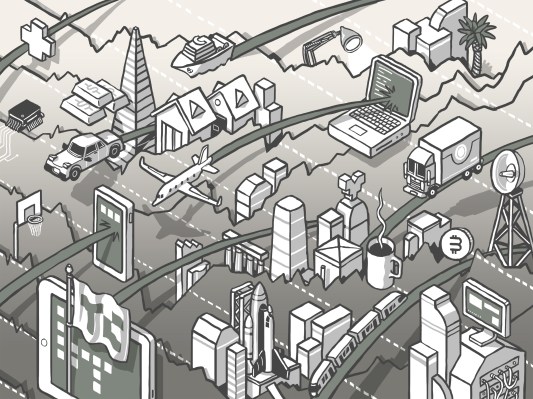As much as we like to end the year with some good news, what we are hearing from grocery delivery company Instacart is not exactly that.
According to The Information, citing “two people familiar with the situation,” Instacart has cut its internal valuation to around $10 billion. That’s 20% lower than its October 2022 valuation — and a 75% cut compared to its March 2021 peak.
The Exchange explores startups, markets and money.
Read it every morning on TechCrunch+ or get The Exchange newsletter every Saturday.
This isn’t the first time that Instacart’s valuation has moved up or down since it became a decacorn — but the graph is more pyramid-shaped than up and to the right. In case you haven’t been keeping tabs on its pre-IPO journey as closely as we have, here’s a recap:
- July 2020: ~$13.8 billion valuation set by a $100 million funding round.
- October 2020: ~$17.7 billion valuation set by a $200 million funding round.
- March 2021: ~$39 billion valuation set by a $265 million funding round.
- March 2022: ~$24 billion valuation set by 409A process.
- July 2022: ~$15 billion valuation set by 409A process.
- October 2022: ~$13 billion set by 409A process.
 A 409A process means that the valuation is set by a third party not the startup itself nor VCs — and that makes it very valuable to us as a data point. So when we heard that Instacart had seen its valuation reduced by 38.5% last March, we held our breath: What would it mean more broadly?
A 409A process means that the valuation is set by a third party not the startup itself nor VCs — and that makes it very valuable to us as a data point. So when we heard that Instacart had seen its valuation reduced by 38.5% last March, we held our breath: What would it mean more broadly?
A few months in, we know that Instacart’s first major valuation haircut was indeed a sign of things to come for other tech companies, whether on the delivery, IPO or valuation fronts. With this week’s news, we also know that we might not have hit rock bottom yet. Let’s explore.
Delivery pains
Instacart’s valuation woes aren’t unique to the company: They are pretty common in its sector and adjacent ones. Its competitor DoorDash, which went public in December 2020, saw its market cap almost steadily decline since November 2021. Just Eat Takeaway stock peaked in October 2021.
Taking a step back from valuations and market caps, tech companies delivering food or groceries aren’t always doing great business-wise either.
Earlier this month, we learned that Turkish instant grocery delivery service Getir would acquire its German competitor Gorillas, which had been “exploring strategic options” since May and had laid off staff. Getir itself had announced in May that it was planning to cut its global workforce by 14% and tone down aggressive expansion plans.
Some food delivery companies aren’t simply reconsidering their expansion hopes; they are plainly exiting markets. For instance, JOKR left the U.S. market to focus on Latin America, where it is now also reducing its presence.
That most if not all grocery and food delivery companies are struggling is no coincidence, and it’s not just because the pandemic’s tailwinds for the sector are over. As market preferences shifted from growth at all costs to efficient growth, businesses with low margins aren’t the most appealing. The healthiest ones still have supporters, but their peak valuations become harder and harder to sustain, putting IPO plans into question.
The delivery sector might have been vilified for valuations that seem overinflated in retrospect, but it is not alone among tech verticals that are failing to deliver the public exits we expected. Again, this makes Instacart a useful benchmark, as its arduous journey to IPO may be a warning sign for others.
Woes of a delayed IPO
Instacart’s IPO, The Exchange wrote in September, “could be the only IPO of note that we see before 2023.” That was in September. Since then, Reuters shattered our hopes by revealing that Instacart was no longer planning to exit in 2022. Its new valuation haircut now makes us wonder if the operation could still take place in the first half of next year or might be further delayed.
Unlike Instacart, which had reportedly filed confidentially for an IPO in May, fellow delivery company Gopuff hadn’t. According to reports, it abandoned its plans before getting to that step, instead looking for a $300 million credit line — a reminder that a delayed IPO is a postponed opportunity to raise cash and generate liquidity.
A lower valuation is obviously a concern for existing investors, but the delay in generating liquidity is also a problem in retaining talent. If reports are correct, Instacart understood this and opted for companywide cash bonuses this December instead of equity grants.
Cash bonuses only go so far, though. Slashed valuations are a major concern for RSU holders, especially when concerns arise that the price of the company is still not right. Things are even trickier for laid-off employees who only have a short window to sell their shares and can’t wait for the market to improve.
Instacart is not alone in all of this, but it might serve as a test case on how to handle the situation. It is not one of the questions we were hoping its fate would answer for us in 2022, but we will still be monitoring it closely in Q1 2023.
